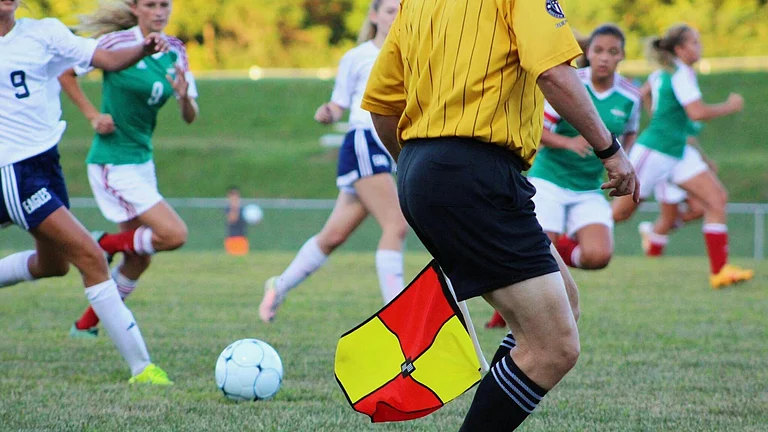The flood waters have receded in Assam and the affected people are busy trying to rebuild their lives.
But the situation is challenging, particularly for the nearly 20 lakh children who have been severely hit by the deluge.
Schools have been damaged, books and learning material are destroyed by water, fear of being preyed upon by human traffickers is lurking, coupled with the trauma of witnessing the death of family members during the natural calamity.
This year’s flood in two waves affecting 90 lakh people has been the worst in the north-eastern state in terms of fatalities, claiming over 200 lives, of which 70 were children.
For 12-year Moina Biswas of Paschim Hatimora village in Hojai district, living in relief camps has been an annual ritual and this year it was particularly heart-breaking when her three-year-old sister was washed away in the flood waters as they were moving to safety in a small country boat.
"We lose household goods during floods every year but my sister’s death is something I cannot come to terms with. We are devastated and I cannot even study with all my textbooks lost in the deluge,” the class 5 student said.
Children of all ages, from newborns to adolescents, are particularly vulnerable during natural disasters and this year’s floods are no exception, experts pointed out.
Education, health, hygiene, and security of children are the key areas of concern during natural calamities.
Incidents of trafficking increase in the post-flood period with parents facing a loss of livelihoods or the death of earning members in many families.
In the severely affected Barpeta district, 14-year-old Samsur Rahman of Rupaikuchi village said he along with his parents had taken shelter in a relief camp and though they have returned home, he is yet to attend classes as he lost most of his books and his parents, who had no work for the last two months, trying to make ends meet.
“The state government has given us money to buy books but what will happen to the notes and assignments that I had prepared before the flood hit us? The deluge did not only wash away our belongings but all wiped away our efforts, along with the time lost in relief camps where we could not study at all’’, he added.
The state government has deposited Rs 1,000 each in the bank accounts of 1,01,537 students who had taken shelter in relief camps while the education department is planning to give additional free textbooks to the affected students by August 15.
Many schools were physically damaged which has led to their closure but to ensure continuity of learning, UNICEF has partnered with the child rights organization ‘Save the Children’ to create alternative learning spaces in 100 damaged schools in the four districts of Dima Hasao, Cachar, Hojai and Nalbari, UNICEF’s Assam chief Madhulika Jonathan said.
"UNICEF is supporting the state government in responding to the needs of the vulnerable population, including continuance of routine services in health, nutrition, water, sanitation and hygiene, education and child protection", Jonathan said.
Flood is an annual phenomenon and when it hit the state this year, the Assam State Commission for Protection of Child Rights (ASCPCR) wrote to the state Chief Secretary to initiate urgent child-centric interventions keeping in mind the health, hygiene, and security of the children, its chairperson Sunita Changkakoti said.
"We had asked the government to make necessary arrangements for providing adequate quantities of baby food, safe drinking water, sanitary napkins, and disinfectant items, to make arrangements for sufficient toilets and medical facilities for children, women, and adolescents in the relief camps’’, she said.
The ASCPCR is particularly concerned about the security of children during the floods and “we had asked the Chief Secretary to direct the Deputy Commissioners to take necessary security measures so that no child falls prey to traffickers”, she said.
Maintaining personal hygiene during disasters is of particular concern for children, particularly adolescent girls during their menstruation as common toilets and lack of proper disposal of sanitary napkins pose a challenge, social activist Archana Borthakur said.
“Sanitary napkins have been included in the relief kits but their disposal creates a problem. Education is also a major area that severely affects the children during their stay in the camps. Ninety per of the affected children could not save their educational equipment’’, the founder of the NGO ‘Priyobondhu’, engaged in flood relief activities for the past several years, said.
She suggested that arrangements be made in the camps for holding some form of classes so that studies are not disrupted.
The National Health Mission, Assam, has chalked out several preventive measures to prevent the outbreak of water-borne diseases in the post-flood scenario.
Regular health camps are being organised, disinfectants are being sprayed and special care is being taken of pregnant women, newborns, and children, a senior NHM official said.
(With PTI inputs)


























